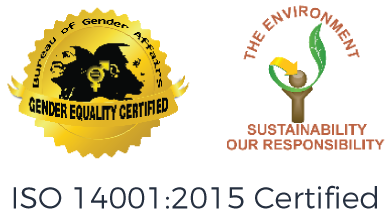Second Rural Economic Development Initiative (REDI II) Project
On November 14, 2019 the World Bank Board gave its approval for a US$40 million loan to fund the Second Phase of the Rural Economic Development Initiative (REDI II) project. Subsequent to this approval, the Government of Jamaica, the World Bank signed the Project and Loan Agreements on March 3, 2020.
- Enhanced Agriculture & Tourism Linkages
- Optimized rural agriculture production
- Addressing the “Structural” / Policy issues
- Direct Integration of Youth (targeted marketing, Employment as active participants, Technical support)
- Improving Productivity e.g. inputs, soil, seedlings, pest management
- Enhanced Business Mentorship & Coaching
- Public Infrastructure Investments
- Enhanced Marketing of Community Tourism Enterprises
- Improved standards and quality of outputs
- Crowding in of private sector based on requirement of minimum 5% cash contribution by beneficiaries
- Increased efficiency through the introduction of technology and innovation
- Increased employment specifically targeting youth. REDI I created 1,300 jobs
- Diversified tourism offerings allowing for expenditure and earnings within rural communities
- Climate resilience built in the two sectors which account for an estimated 18% of GDP
- Expansion of formal businesses and the benefits that flow from that formality
Enhancement to the REDI II approaches. Building on the experience and results of REDI II, the new project will focus on strengthening value chains and the development of tourism clusters, with an emphasis on the linkages between producers/service providers and buyers, to improve economies of scale for small agricultural and tourism enterprises and to mainstream climate resilience.
- Facilitating the strengthening of the supply chain linkages between the agricultural sector and end users in processing, the tourism sector, fast food chains, restaurants and supermarkets.
- Supporting the development of community-based tourism as a viable option and opportunity for economic investment.
- Strengthening the capacity of rural groups to be able to plan and implement income- generating projects.
- Ensuring greater sustainability of rural development through inter agency collaboration.
REDI II - Project Components
Climate Resilient Agricultural and Community Tourism Investments for Rural Enterprises
Total US$28.0 million, IBRD US$26.0 million and Beneficiary Contribution US$2.0 million).
The objective of this component is to promote the development of agricultural/community tourism
enterprises that are better integrated in productive partnerships or “alliances" and operate more
competitively in selected value chains, with more reliable linkages with buyers and markets and increased capacity to manage climate risks.
Examples of Component 1 Projects
Agriculture:
- Protected Agriculture
- Value added production
- Small Ruminant Production (sheep and goats)
- Fisheries development
- Water harvesting and drip irrigation systems
- Youth led initiatives
- Post-harvest/Cold storage Infrastructure and Packing sheds
- Introduction of new crop varieties and innovative production methods
- Farm and Farmer certification programmes
- Technical Assistance & Capacity Building
Tourism:
- Agro tourism experiences
- Product Development & Tour Packaging for Community Tourism Enterprises
- Marketing & Promotion
- Craft Development
- Cultural heritage tours and experiences
- Technical Assistance & Capacity Building
Component 2:
Institutional Strengthening and Capacity Building for Public Entities
IBRD US$8.0 million
This component aims to strengthen the capacity of relevant public sector institutions—the
Ministry of Industry, Commerce, Agriculture, and Fisheries (MICAF), MOT, and JSIF—and associated entities, Rural Agricultural Development Authority (RADA), Tourism Product Development Company (TPDCo), and others) to provide the public infrastructure and quality services needed to promote inclusive rural development (based on the agriculture and tourism nexus) and to ensure the sustainability of the rural enterprises and productive partnerships supported by the project.
Subcomponent 2.1—Public Infrastructure Investments (IBRD US$6.0 million). This subcomponent will
finance civil works, goods, and consulting services for the priority public infrastructure investments (to
develop new or rehabilitate existing infrastructure) required to improve the efficiency and climate
resilience of targeted agri-food and tourism value chains.
Subcomponent 2.2: Technical Assistance and Capacity Building (IBRD US$2.0 million). This
subcomponent will finance technical assistance (consultant and non-consultant services, goods, training,
workshops, and study tours) to strengthen the capacity of relevant national organizations and other
partner entities responsible for assisting the agricultural and community tourism enterprises.
Component 3:
Project Management, Monitoring, and Evaluation
This component will finance incremental costs associated with the coordination, administration, supervision, and monitoring and evaluation (M&E) of project implementation by JSIF and the technical Project Management Team (PMT) that JSIF will establish for REDI II. Costs to be financed include technical expertise (agriculture, tourism, business development, M&E, and so on), salaries of other contractual staff of JSIF supporting the project, staff training, annual audit, vehicles, office equipment, and other operating costs. This component will also ensure that effective safeguard, fiduciary, and M&E arrangements are in place during implementation.
Component 4:
Contingent Emergency Response
This component will allow loan proceeds to be reallocated from other components to support emergency recovery and reconstruction following an eligible crisis or emergency at the national or subnational level. Specifically, given the design of the proposed project, this Contingent Emergency Response Component (CERC) is expected to be operationalized through a reallocation from Component 1 to provide emergency recovery and reconstruction support. To ensure that there is capacity to implement this component, the POM includes a CERC annex applicable to eligible disasters detailing fiduciary, safeguard, monitoring, reporting, and any other implementation arrangements necessary.
Groups of persons who are engaged in existing or new enterprises that are legally registered as a Cooperative, Benevolent or Friendly Society. MSMEs, or any legally established association formed by micro and small farmers and fishers engaged in supplying agro-based products and services and tourism producers (including artisans making handicrafts) and service providers that meet the eligibility criteria may apply.
Eligibility Requirements
- The Groups can be registered with the Department of Co-operatives or the Companies Office of Jamaica with the requisite management structure in place.
- Cash contributions from beneficiaries will range from 5 percent to 60 percent of total subproject costs, depending on the type of beneficiary and the size of the matching grant
- Market demand is clearly identified
- Financial feasibility established (Business Plan available)
- Identification and/or agreement with buyers (Contracts or Letters of Intent)
- Potential contribution to climate change adaptation/mitigation
- Potential to enhance climate resilience
- If the project involves infrastructure, group must have a land title or at least a minimum 20 year lease
- Potential beneficiaries will be expected to complete and submit a signed application form (available at www.jsif.org, RADA Parish Offices and TPDCO Regional Offices) providing details on the project for which support is being requested to include but not limited to information on the group/cluster, potential project idea, current activities, current economic situation and proposed economic benefit to the group and community, indication of market demand and access to markets.
- The agriculture applications should be submitted to the JSIF Head Office either directly or through RADA Parish Offices. Tourism applications should be submitted to JSIF Head Office directly or through the TPDCo Regional Offices.
- Applications must comply with guidelines for completion in order to be considered.
- Applications will be registered and screened in accordance with eligibility criteria following which the group will be notified of outcome and next step.





